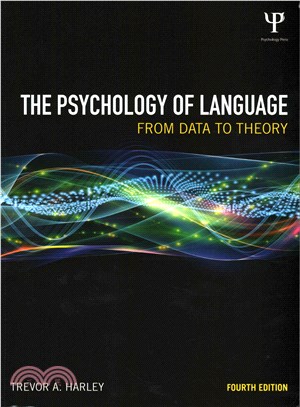商品簡介
"This fully revised edition of the popular textbook provides an up-to-date and comprehensive introduction to the psychology of language for undergraduates, postgraduates, and researchers. It contains everything the student needs to know about how we acquire, understand, produce, and store language. The Psychology of Language, 4th Edition, covers all the main topics in the psychology of language, such as language production, comprehension, syntax and parsing, reading development, and word recognition. In addition, this text covers language acquisition, how language is related to thought, bilingualism and second language acquisition. Following a strong developmental theme, it also describes how children acquire language while demonstrating how this is related to the brain and to other aspects of cognition. Whilst maintaining both the structure of the previous editions and the emphasis on cognitive processing, this fourth edition has been thoroughly updated with all the latest and cutting-edge research. In particular, the book takes into account recent research into cognitive neuroscience and the relationship between language and the brain. The Psychology of Language, 4th Edition describes complex ideas in a clear and approachable style, and assumes no prior knowledge other than a grounding in the basic concepts of cognitive psychology. It will be essential reading for advanced undergraduate and graduate students of cognition, psycholinguistics or the psychology of language. It will also be useful for thoseon speech and language therapy courses. The Psychology of Language, 4th Edition, is supported by a companion website featuring a range of helpful supplementary resources for both students and lecturers"--
作者簡介
Trevor Harley is Dean of Psychology and Chair of Cognitive Psychology at the University of Dundee, Scotland. He was an undergraduate at the University of Cambridge, where he was also a PhD student, completing a thesis on slips of the tongue and what they tell us about speech production. He moved to Dundee from the University of Warwick in 1996. His research interests include speech production, how we represent meaning, and the effects of ageing on language.
























